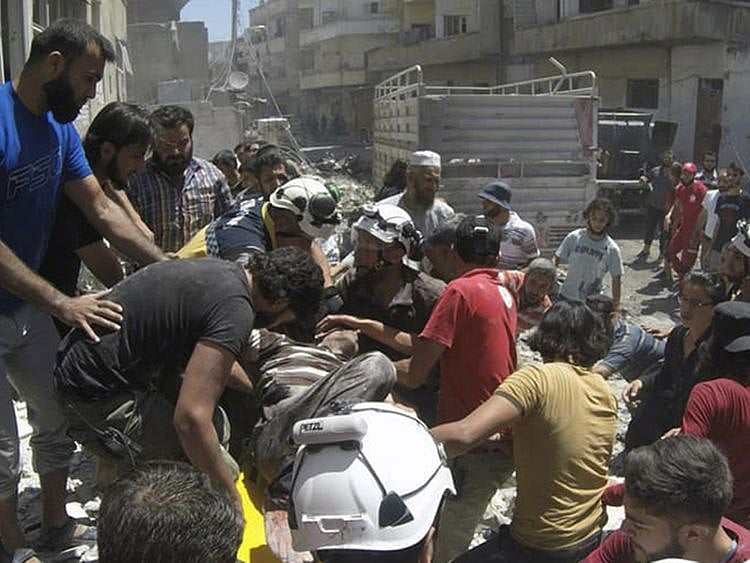A terrible fate for the people of Idlib
A fragile truce and tenuous buffer zone are all that stand between the city and besiegers

If the Syrian regime can ever be taken at its word — given the tragic and terrible events of these past seven years that is indeed a very big ask — then a temporary truce has been agreed for the besieged city of Idlib. Whether that truce agreed on Friday can indeed hold remains to be seen, but the terms are supposed to guarantee sufficient time for an agreed buffer zone to be implemented around the city.
That Turkish-Russian buffer zone came as a result of talks in Sochi and is supposed to put between 15 and 20 kilometres between Syrian regime forces and rebel fighters who hold the last enclave of anti-Bashar Al Assad territory in the broken nation. The buffer zone is supposed to be monitored and held by both Turkish and Russian forces.
Whether the truce can be effective in the longer term remains an open question but any measure that ends the heavy bombardment and aerial attacks on the city and its 3 million people is something. Over the past weeks, as emboldened regime forces, assisted on the ground by Iranian militia fighters and Russian warplanes in the air, began their assault on Idlib. Simply put, there is nowhere left for those cowering in the rubble of the city to hide or seek relief. The only thing its defenders hold is the knowledge that they face certain annihilation should the city fall.
For the regime and its allies, Idlib remains the last thorn of resistance in a brutal and bloody war that has left the once thriving nation of 22 million now broken and bereft. Five million Syrians live elsewhere, unable and unwilling to return to their homes and towns, communities and cities, knowing that retribution and revenge await from a regime that has killed, bombed, maimed, poisoned and imprisoned its own.
Even though a buffer zone agreement has been hammered out, it is a plan that is deeply flawed. Russian troops on the ground will supposedly separate Syrian forces and their allies from rebels. From the air, however, Russian warplanes have bombed and strafed the people of Idlib and rebel positions. There is no guarantee that those same Russian troops will not pass on intelligence and position reports to their comrades who wear aviator uniforms.
On empirical and anecdotal evidence, those inside Idlib face a frightful future of bombings and brutality. Yes, there have been occasions when humanitarian corridors and evacuations of the sick and injured spare some of the misery of this most brutal conflict. We can only hope then that once more such a small mercy can be found.
Sign up for the Daily Briefing
Get the latest news and updates straight to your inbox
Network Links
GN StoreDownload our app
© Al Nisr Publishing LLC 2026. All rights reserved.